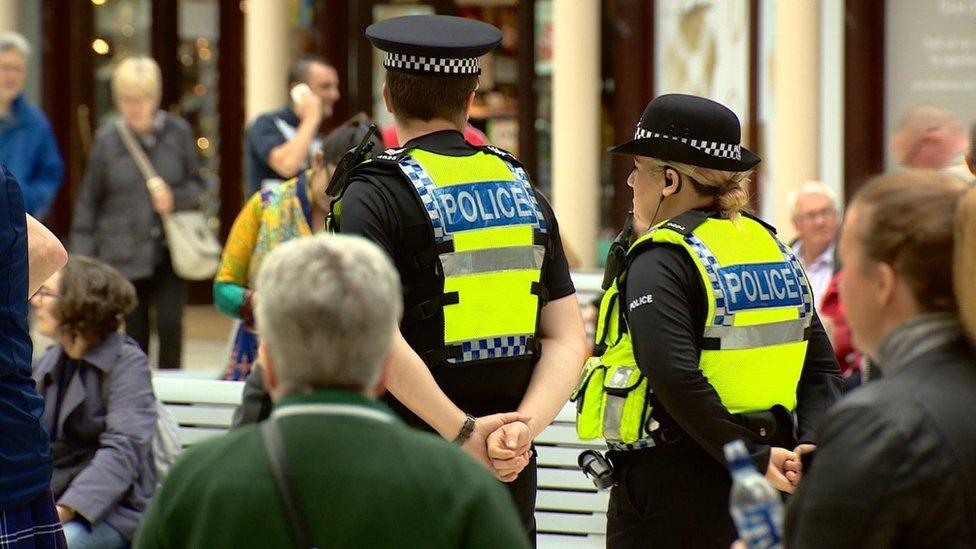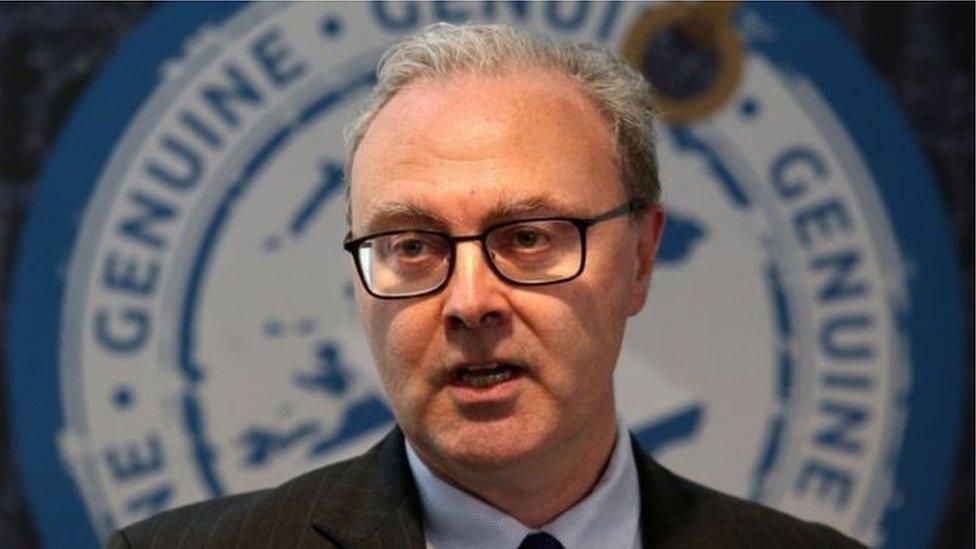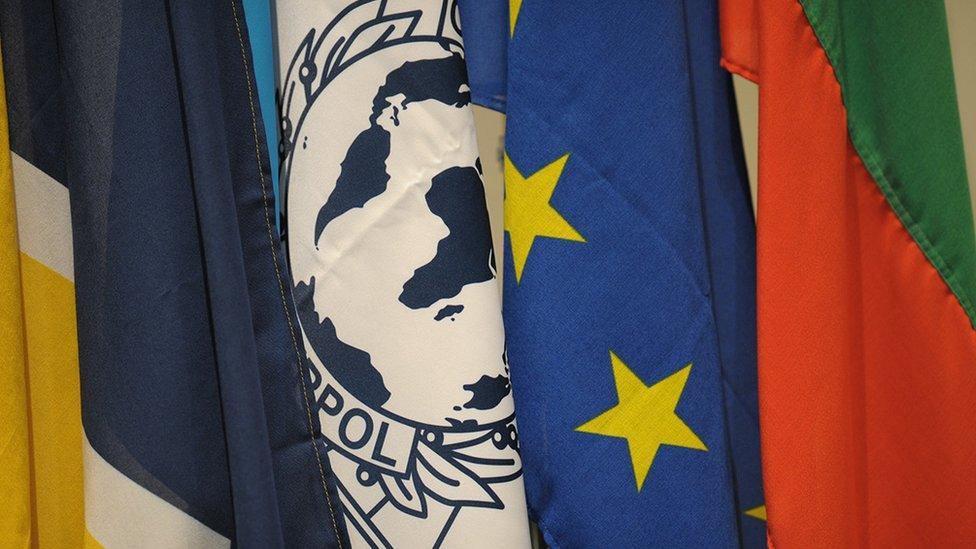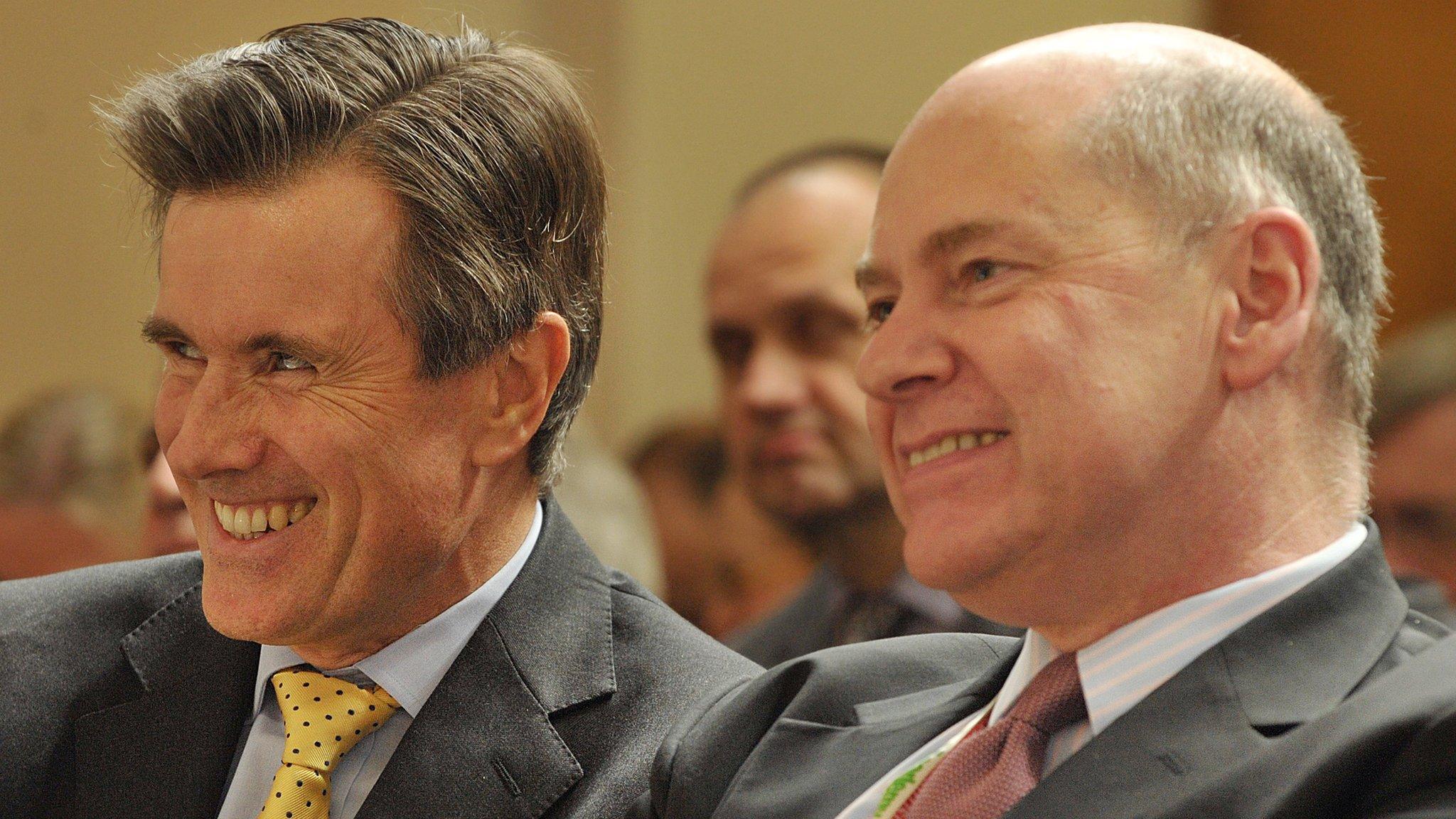Criminal 'safe haven' warning over Brexit
- Published

Scotland's senior prosecutor has warned that the country could be at risk of becoming a safe haven for international criminals as a result of Brexit.
Lord Advocate James Wolffe said this could happen if current levels of European law enforcement co-operation were lost.
He said it was in the UK's interests to ensure effective arrangements were put in place when it leaves the EU.
"It is hugely important the right choices are made," he said.
A UK government spokesman insisted that Brexit negotiations would include talks over "continued co-operation on security, law enforcement and criminal justice".
Lord Wolffe made his comments during a visit to Police Scotland's International Assistance Unit which was last year responsible for the arrests of 78 people on Europol's wanted list and handled 34 requests for cross-border surveillance.
A total of 71 people wanted by EU member states were extradited while a further 23 suspects wanted in Scotland were arrested under European arrest warrants overseas.
'Right choices'
Officers also handled 950 inquiries from the international police organisation Interpol.
Visiting the unit at the Scottish Crime Campus at Gartcosh with Justice Secretary Michael Matheson, Mr Wolffe told BBC Scotland: "It's absolutely essential that as we go through this process we make the right choices in order to preserve the benefits of international co-operation that we currently enjoy.

James Wolffe said it was "hugely important" that the right choices were made
"One of the risks if we had, for example, no robust legal arrangements for the extradition of individuals wanted for trial in other countries, is that we would become a safe haven for criminals.
"Equally, if we were unable to extradite to Scotland people who we wish to prosecute then plainly our criminal justice system would be prejudiced. If we were not members of the EU the extradition process would be significantly more cumbersome, both slower and more difficult to operate.
"Ultimately, it will be a matter for negotiation what arrangements are put in place, but from my perspective as the prosecutor of crime in Scotland, it's hugely important that the right choices are made and the right priority is given to those particular arrangements."
'Serious implications'
Mr Wolffe and Mr Matheson's visit included them meeting two EU national Romanian police officers who are currently assisting with investigations involving Romanians as victims, perpetrators and witnesses of crime.
Mr Matheson said the unit's work reinforced the importance of international co-operation on policing.
Speaking before a meeting of the Serious Organised Crime Taskforce, he said: "Organised crime and terrorism do not respect borders and it is vital that our police service can work with counterparts in Europe and across the world to help keep Scotland safe.
"The excellent results achieved by our international assistance unit shows that this collaboration is currently working well. Yet dragging Scotland out of the EU places huge doubts over our Europol membership and participation in the European Arrest Warrant.
"This would have serious implications for the safety of Scottish communities, meaning it is much harder to identify, arrest and extradite criminals who travel here - as well as making it more difficult and time consuming to apprehend Scottish criminals who flee overseas."
Negotiating objectives
He later told BBC Scotland: "We are very concerned about the potential impact that Brexit will have on our ability for our police here in Scotland to engage with their partners across the rest of Europe and to share information.
"There is no doubt that if we lose our access to Europol in the way in which we have at the present moment, we will be able to have a level of shared intelligence, a level of co-operation but it certainly will not be to the level we have at the present moment.
"It will be a slower process and we won't have that live data that we are able to get from Europol at the present time."
The average time for Police Scotland receiving a European Arrest Warrant to arrest or surrender is 42 days, compared with an average of nine months before the system was in place, the government said.
A spokesman for the UK government said: "The prime minister has been clear that one of her 12 negotiating objectives is continuing to work with the EU to preserve European security, to fight terrorism, and to uphold justice across Europe.
"As part of the negotiations, we will discuss with the EU and its member states how best to continue co-operation on security, law enforcement and criminal justice."
- Published31 May 2016

- Published8 May 2016
